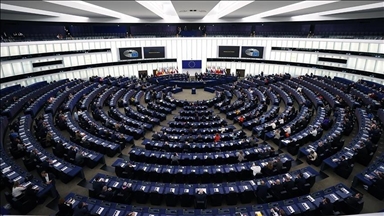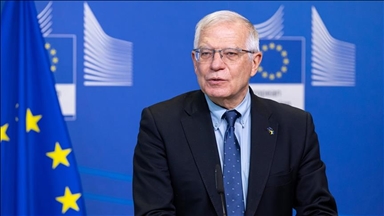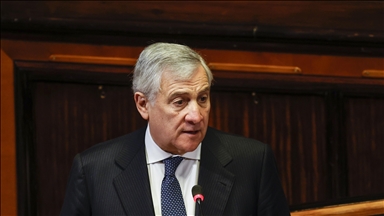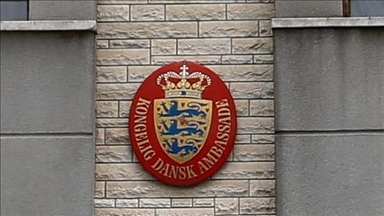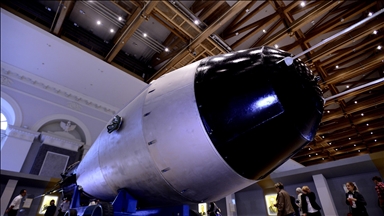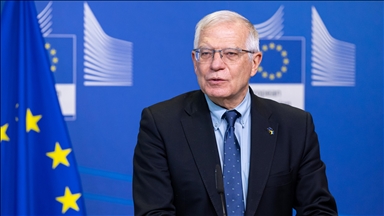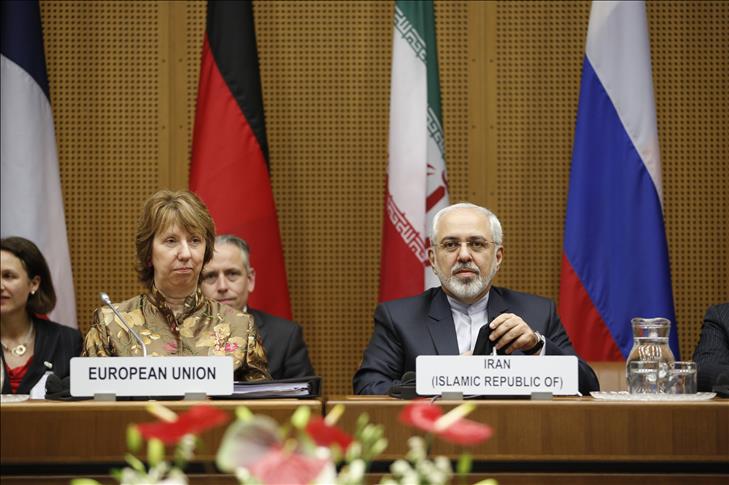
By Kasim ILERI
WASHINGTON
Experts predict that Iran and world powers are unlikely to reach a comprehensive agreement in their nuclear talks, but that the parties will not walk away from negotiations after the Nov. 24 deadline.
The five permanent members of the UN Security Council - the U.S., UK, China, France and Russia - plus Germany make up what is known as the P5+1.
This group is due to reach an agreement with Iran on its nuclear program by Nov. 24.
However, neither Obama administration officials nor experts on the issue believe that there is likely to be a comprehensive deal by next week.
An agreement at this point would be difficult to reach, Tony Blinken, President Barack Obama’s nominee for deputy Secretary of State, told the Senate on Wednesday.
President Obama, speaking on TV last week, said there was still a big gap between the two sides that was not possible to close in the time left.
He added that they would need to have a lock-tight assurance that Iran would not develop a nuclear weapon.
The U.S.’ interest in Iran is two-fold, Obama announced.
The number one priority was to make Iran roll back its nuclear program, he said.
"The second thing that we have an interest in is that Iran has influence over Shiites, both in Syria and in Iraq, and we have a shared enemy, ISIL," Obama added.
Trita Parsi, an Iranian expert at the Washington-based National Iranian American Council, also agreed that defeating ISIL is in the common interest of both Washington and Tehran.
"Iran and the United States share a common interest in defeating the Islamic State, but real cooperation cannot take place until the nuclear issue is resolved," he wrote in an article for the Foreign Policy journal.
This is most likely the reason that when Kerry said there would not be another extension in the talks, he kept the door open for future negotiations.
- 'Outline of an agreement' with Iran
There remains, however, a third possibility: that the parties will draw a framework for an agreement and sustain talks within its parameters.
Indeed, experts predict that this scenario is the most probable outcome next week, as they think it unlikely that Iran or the P5+1 would walk away from the negotiating table after the deadline.
Kerry recently said that they are driving towards an "outline of an agreement."
Blaise Misztal, director of the Foreign Policy Project at the Washington-based Bipartisan Policy Center, believes that reaching a comprehensive agreement or breaking off negotiations altogether are two extreme scenarios for the time being.
He told The Anadolu Agency that "The most likely outcome is somewhere in between, which is either an extension of the talks or a deal on a framework, the details of which would be negotiated later."
The Obama administration was severely criticized for extending negotiations in July, and tensions in Washington are widely expected to rise again in the case of another extension in the talks.
However, Mistzal said that despite the criticism, "the mantra in the U.S. is that no deal is better than a bad deal."
He noted that, as in the U.S., there are people in Iran who are in favor of a comprehensive agreement.
Mistzal said that the real question was whether the major political players were ready to make a deal.
The Iranian Revolution Guards Court, one of the two significant players in Iranian politics, are thought to be against an agreement.
The other significant player -- Supreme leader Ali Khamenei -- "has been playing his cards with regards to the West very close to his chest," according to Mistzal.
"We still have not seen enough evidence to know which way he has decided. He may not have even made a decision yet," Mistzal added.
An Iranian scholar at Princeton University, Seyed Hossein Mousavian, also agreed that parties to the talks would agree on a general outline, and continue negotiations within its confines over the coming months.
However, Mousavian blamed world powers for the failure to reach an agreement thus far.
He claimed the measures they are taking against Iran go beyond international law and regulations.
Mousavian said that Iran would not dispute transparency measures within the scope of the Non-Proliferation Treaty, nor rules and regulations set by the International Atomic Energy Agency, better known as the IAEA.
The dispute, Mousavian continued, stems from the U.S. and world powers asking Iran to allow inspections beyond the Non-Proliferation Treaty and IAEA regulations.
"Iran will agree to this demand for a certain period of time, in order to address the military dimension of the issue. But this will only be for a specific period," he told the Anadolu Agency
The U.S. wants the Iranian nuclear program to be constantly monitored to prevent it using its nuclear technology for military purposes.
Limiting the level of enrichment at 5 percent as well as limiting Iran’s stockpile and the number of centrifuges and enrichment sites are all demands that go beyond the requirements of the Non-Proliferation Treaty, Mousavian added.
Anadolu Agency website contains only a portion of the news stories offered to subscribers in the AA News Broadcasting System (HAS), and in summarized form. Please contact us for subscription options.


